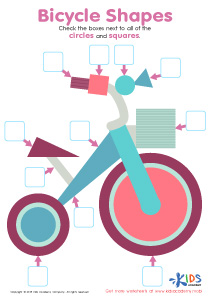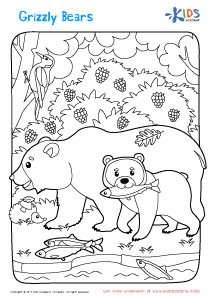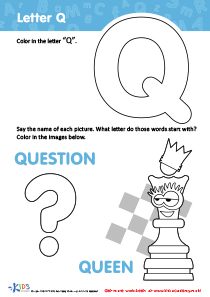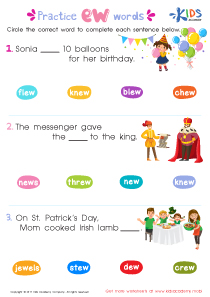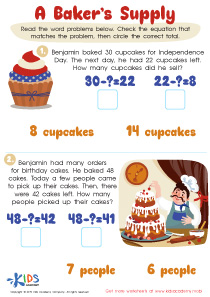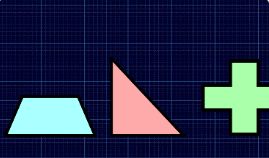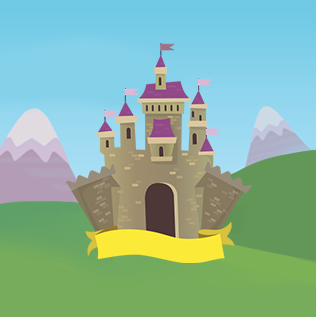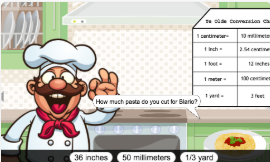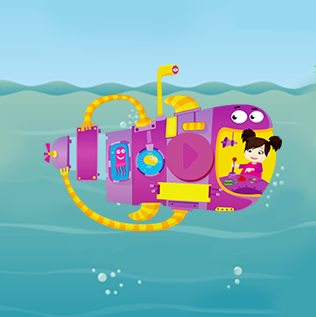Logic and Early Math Lessons | Shapes for 5-Year-Olds
9 results
Discover the world of geometry with our captivating "Shapes for 5-Year-Olds" lessons! Designed to engage young minds, this course introduces children to basic shapes through a mix of interactive worksheets, enchanting educational videos, and stimulating assessment quizzes. Our lessons are crafted to enhance recognition, differentiation, and the fundamental concepts of shapes, making learning both fun and impactful. Perfect for 5-year-olds, our course promises to lay a strong foundation in geometry with activities tailored to their learning pace. Embark on this geometric adventure and watch your child’s understanding of shapes unfold beautifully!
In today's educational landscape, the importance of early childhood education cannot be overstated, particularly when it comes to foundational concepts like shapes. Our lessons on shapes for 5-year-olds are meticulously designed to cater to young learners' curiosity, blending interactive worksheets, engaging educational videos, and assessment quizzes to create a comprehensive learning experience.
Understanding shapes is not merely about identifying geometric figures; it's a critical stepping stone in cognitive development, spatial reasoning, and problem-solving skills. For 5-year-olds, who are at a stage of rapid brain development and eager exploration, our lessons offer an invaluable resource to harness their potential and guide them through the fascinating world of shapes.
Interactive Worksheets: These are at the heart of our lessons on shapes for 5-year-olds. Crafted with vibrant colors, engaging characters, and a variety of shapes, they are designed to capture children's attention and sustain their interest. Through tracing, matching, and drawing activities, children not only learn to recognize and name shapes but also improve their fine motor skills and hand-eye coordination. These worksheets challenge young minds in a fun, playful manner, ensuring that the learning process feels more like an adventure than a chore.
Educational Videos: In an age where screen time can be both a concern and a tool for learning, our carefully curated educational videos serve as a dynamic supplement to our interactive worksheets. Featuring catchy tunes, animated characters, and clear, concise explanations, these videos reinforce the concepts introduced in the worksheets, catering to different learning styles. Children can watch shapes come to life, engaging their auditory and visual senses and making complex ideas more accessible.
Assessment Quizzes: Learning about shapes is not just about exposure but also about understanding and application. Our assessment quizzes are thoughtfully designed to gauge children's grasp of the topic, providing immediate feedback that is both informative and encouraging. These quizzes serve a dual purpose: they consolidate the learning that has taken place, and they offer parents and educators a glimpse into the child's comprehension and areas where they might need further support.
The Impact on Studies: The benefits of our lessons on shapes for 5-year-olds extend far beyond mere shape recognition. These lessons lay the groundwork for more advanced mathematical concepts like geometry, measurement, and spatial awareness. Moreover, they play a significant role in developing critical thinking and problem-solving skills. As children learn to compare and contrast different shapes, they begin to understand the concept of similarities and differences, categorization, and logical reasoning—all of which are fundamental skills in a wide range of subjects.
In conclusion, our lessons on shapes for 5-year-olds are more than just an educational tool; they are a bridge to a world of learning and discovery. By engaging young minds in a comprehensive, fun, and interactive way, we not only teach them about shapes but also foster a love for learning that will benefit them throughout their educational journey. It's an investment in their future, building confidence, creativity, and a solid foundation for lifelong learning.
